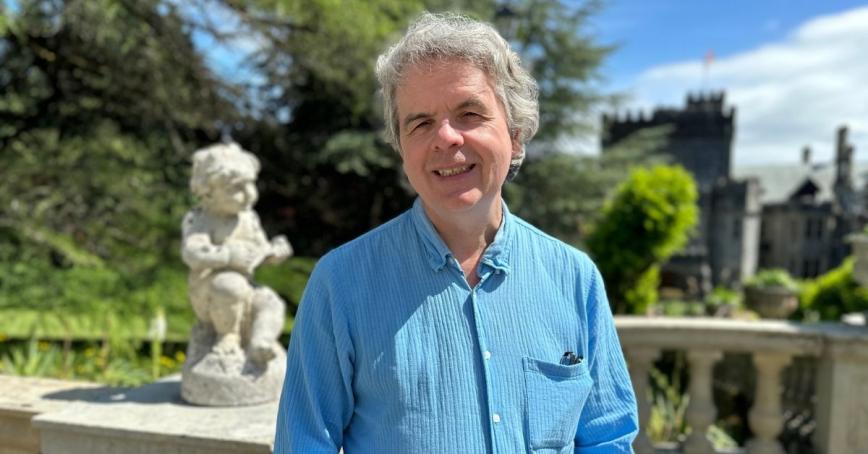POCKET CLASS: Communication is broken; here’s the fix
Topics
Featured
Share online

What do angels and ghosts have to do with how we talk to our partners, colleagues, kids — or even how we consume the news?
“They’re helpful metaphors for thinking about communication,” says Assoc. Prof. David Black, a Royal Roads University communication theorist and historian. In his RRU Pocket class, he draws on contemporary communication scholar John Durham Peters’ metaphor of angels and ghosts to shed light on the way we communicate with one another.
“Going back to antiquity, we’ve been modeling communication as if it’s done by angels,” he says, explaining that according to medieval lore, angels communicated telepathically, in a sort of perfect mind-to-mind transmission.
Many of us wrongly assume that such perfect understanding is an ideal we should pursue in communicating with individuals and audiences, leading to frustration when we fail to meet that standard, he says.
Black says the problem with the “angelic” model of communication is that it gives all the power to the sender. It assumes the message should and could arrive just as intended, leaving little room for the receiver’s role in interpreting or shaping meaning.
The truth is, no matter how well we might control our message, we can never control how it’s perceived, received and interpreted, Black says.
Enter the ghostly model.
“If we think of communication on a ghostly basis, we imagine ourselves passing through each other’s lives,” Black says. “We are speaking imperfectly. We leave impressions. Communication so conceived is more like a séance, where distant voices strive to signal to us, and where the burden lies on the receiver to interpret what was said.”
With this perspective, communication isn’t about if people get our message as we intend them to. It's about if we’ve created something that matters together, Black says.
“And suddenly, communication becomes less about delivering a message and more about coexisting and collaborating in a complex, fallible works of meaning making.”
Where will your story take you? Learn more about our Communications programs.